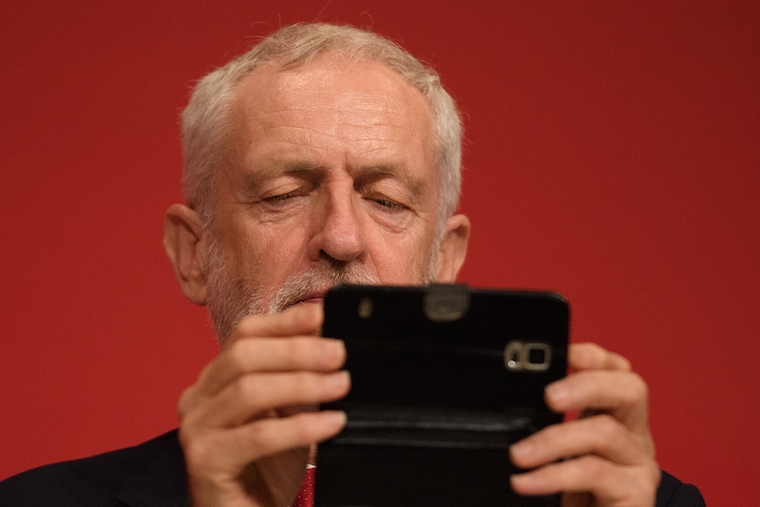Labour was supposed to be having only one big row this week at conference – on Brexit. Instead, it’s ended up having two: one about how the party will campaign on Britain’s future relationship with Europe and the second on Jeremy Corbyn’s leadership.
Today has not seen a good recovery from the Labour leader after yesterday’s attempt to oust Tom Watson. Corbyn appeared to save the day by refusing to allow the motion to go ahead at the NEC meeting, but is much wounded by the fact that the putsch was attempted at all. That there are suspicions one of his own aides, Karie Murphy, was part of this plot, hasn’t helped. But far more damaging is the resignation of Andrew Fisher, which I covered this morning. Corbyn wasn’t able to close down either the Watson or the Fisher story when he appeared on the Andrew Marr Show, and neither did he offer a particularly convincing line on Europe.
This means that it is going to be even harder for Labour to get its message out. It wanted to spend this week talking about ‘People Before Privilege’, with insiders arguing that the party’s strength is in the domestic policy sphere, where voters believe it is on the side of ordinary people. Many of the policies coming up this week are focused on universalism rather than means testing in public services, with the party trying to extend the values of the much-venerated NHS to other areas too. John McDonnell’s speech tomorrow will contain one such plan.
Then there are the ‘Abolish Eton’ type stories, which are designed underline the ‘privilege’ aspect, given this is a negative association for Boris Johnson. It’s not clear, though, whether people care enough about Johnson’s upbringing, given the Prime Minister is so much further ahead on the question of leadership than Corbyn. But Johnson isn’t the party’s only target: Jacob Rees-Mogg’s lounging on the government benches has arguably had more cut-through than anything else the government has been up to lately. The reason there is so much focus on these senior Tories and the allegation that they act as though they were ‘born to rule’ is that Labour hopes it can use this to neutralise the ‘people vs parliament’ narrative that the Tories are trying to craft for the next election. The opposition wants to stop voters from thinking that the Conservatives are definitely on the side of the people, because they are in fact too interested in themselves.
Given how much else is going on this week outside Labour conference – the Supreme Court ruling and Johnson’s visit to the UN General Assembly – it was always going to be hard to get this message out. But the great irony is that Labour appears too interested in itself with its internal battles to be able to shout over the noise. This is not the ideal start to a pre-election conference at all.







Comments